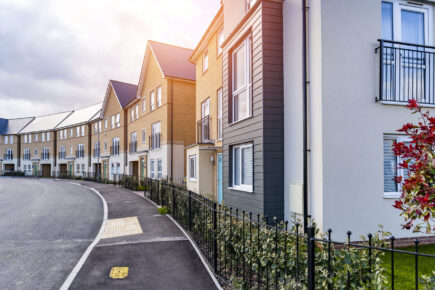Out of the 21 bills announced in the first King’s Speech in over 70 years, there was a focus on housing with the Renters Reform Bill, which will look to deliver more security and value for tenants, while enabling landlords to reclaim their property when necessary and will ensure the Government’s manifesto commitment to abolish ‘no fault’ evictions is delivered. The Government also stated it is relaxing the regulations and restrictions around leaseholds through the Leasehold and Freehold Reform Bill.
Key measures from the Renters (Reform) Bill:
● End ‘no fault’ evictions. However, the abolition of section 21 (an eviction notice) will not begin until stronger possession grounds and a new court process is in place.
● Strengthen landlord grounds for possession, adding new compulsory grounds for possession.
● Bring in stronger powers to evict anti-social tenants.
● Seek to halve the delay between a landlord serving notice for anti-social behaviour and eviction, with landlords able to make a claim in the court immediately.
● Broaden the criteria for disruptive and harmful activities that can lead to eviction.
● End blanket bans on pets.
● Create a digital Private Rented Property Portal to bring together key information for landlords, tenants, and councils.
● Support faster and cheaper resolutions when there are disputes with a new Private Rented Sector Ombudsman.
Meanwhile, the Leasehold and Freehold Reform Bill seeks to address long-standing issues in the property sector, offering solutions that are intended to empower leaseholders, improve consumer rights, and reform the leasehold market.
Key measures from the Leasehold and Freehold Reform Bill:
- Extend lease terms to 990 years with zero ground rent. This substantial extension offers leaseholders greater security and reduces the expense of future lease extensions. At present, the standard lease extension entitlement is only 90 years.
- Eliminate the two-year ownership requirement for benefits. Removing this requirement accelerates the process of securing freehold ownership or a 990-year lease extension.
- Raise the 25% ‘non-residential’ limit for freehold acquisition. Increasing this limit expands the opportunity for leaseholders in mixed-use buildings to gain control of their properties.
- Ensure transparency in service charges. Clear, comparable formats for charges empower leaseholders to challenge unreasonable fees.
- Replace insurance commissions with clear administration fees. This change prevents exorbitant charges on top of premiums.
- Extend rights and protections ensuring equitable treatment for freehold homeowners, with transparency over charges and access to redress schemes.
- Ensure developers fund building remediation work. Extending measures from the Building Safety Act 2022 safeguards homeowners from remediation costs.
- Ban new leasehold houses ensuring that new houses will be freehold by default, providing security for new homeowners. It is worth noting that this does not include flat ownership, which has been the source of some criticism over the reforms.
Alison Taylor, property partner and practice group leader comments:
“The Autumn Statement on the 22 November, will help to confirm what the Government will prioritise out of the bills announced and the financial support that will be available for these and other areas. Also, given the complexity of leasehold reform, the government will likely seek further consultation with the wider market before the Bill’s enactment further down the line. Our property teams will be monitoring developments closely to ascertain the full impact for our clients.”
For further advice and information, please contact B P Collins’ property team or property disputes team at enquiries@bpcollins.co.uk or call 01753 889995.


















